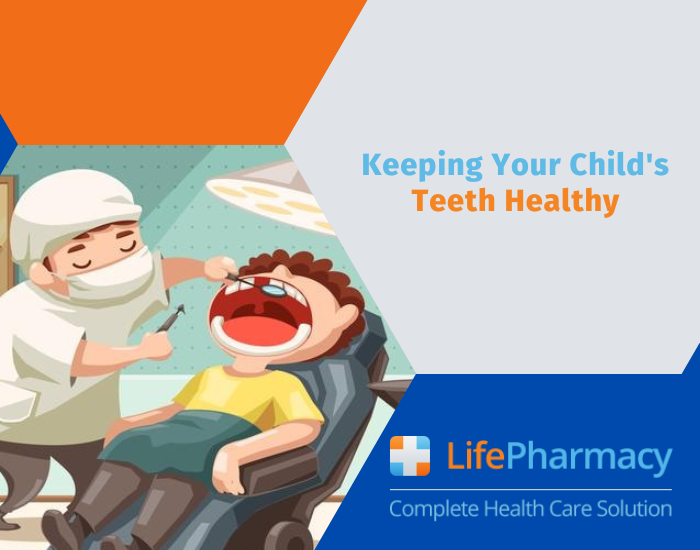Children are more susceptible to dental infections than any other type of infection. The latest advances in dentistry have allowed dentistry to make great strides. Even so, you need to participate in your own and your child’s dental health. People’s oral health is linked to their overall health, and untreated dental problems have been linked to strokes, heart attacks, and diabetes in adults.
Children and adults alike suffer from dental caries, also known as tooth decay or cavities. However, these conditions can be stopped with good dental health habits and several proven methods.
Parents, however, often have a difficult time judging how much dental care their children need. In addition, it’s common knowledge that people want to prevent cavities, but they are not aware of the best way to accomplish this. However, it is preventable by following the proper guidelines and the assistance of online chemists. These tips and guides will help you.
What is the ideal age for kids to start brushing their teeth?
The importance of dental care begins long before a baby gets its first tooth. Although you may not see the teeth, that doesn’t mean they don’t exist. As early as the second trimester of pregnancy, your baby develops teeth. Your child has 20 primary teeth at birth, some of which have fully developed in the jaw.

The following information can help you care for those little choppers:
- To ensure your baby’s gums are clean, run a damp, clean washcloth over them before teething begins.
- Brush your baby’s teeth with an infant toothbrush as soon as they appear. Use water and fluoride toothpaste, as long as the toothpaste carries the American Dental Association’s (ADA) seal of acceptance.
- Once your baby’s two front teeth touch, you can begin flossing between them.
- Your child needs to start spitting while brushing at age 2. Don’t give your child water to swish and spit while brushing since it can increase the risk of them swallowing toothpaste.
- When using fluoride toothpaste, kids ages 3 and up need to use only a pea-sized amount.
- It would be best always to supervise children younger than 8 while brushing since they may swallow toothpaste.
Putting the kid to sleep with a bottle can make their teeth more susceptible to decay. “Bottle mouth” or “baby bottle tooth decay” may result when the sugar from juice, formula, or milk is left on a baby’s teeth for a prolonged period. A decayed tooth might become discolored, pocked, or pitted, and cavities can form as a result. When the decay is severe, the tooth may have to be extracted.
By six months old, children can switch from a bottle to a sippy cup, thereby preventing liquid from pooling around the child’s teeth. By their first birthday, kids have the motor skills and coordination to use a cup independently.
What is the perfect time to take children to the dentist?
The online chemist in the UK recommends that children see a dentist by their first birthday. The dentist will demonstrate how to brush and floss your child’s teeth while you sit on their laps during this first visit.

As the child gets older, these visits can help detect problems early and help them become more comfortable going to the dentist. If your child has dental issues, you should consider taking them to a pediatric dentist, as they are trained to handle the various problems related to kids’ dental health. They are also aware of when to refer you to different specialists, like:
- Orthodontist – to correct an overbite
- Oral surgeon – for jaw realignment.
If your child is at risk for cavities or other problems, the dentist may apply fluoride topically even before all their teeth emerge. As a result of fluoride hardening the tooth enamel, cavities are less likely to form in children.
What can we do to prevent cavities?
Cavities occur when bacteria and food remain on teeth after eating. As a result, the acid accumulates on the enamel, causing the tooth to soften and a hole to form.
Keep your teeth healthy by following these steps:
- Practice good oral hygiene at an earlier age.
- Make sure you get enough fluoride.
- Consume sugary foods, juice, candy in moderation or avoid them altogether.
Conclusion
As your child grows, schedule routine dental checkups anywhere from 3 months to a year, as recommended by your dentist. Online chemists recommend avoiding sugary foods, encouraging regular brushing and flossing, and working with your dentist for good dental health.

